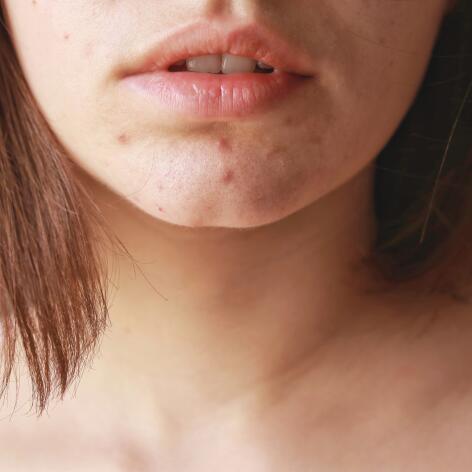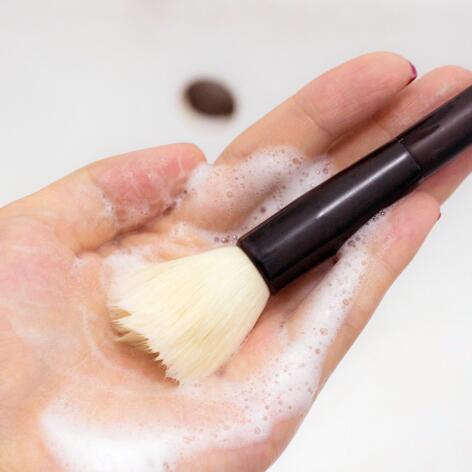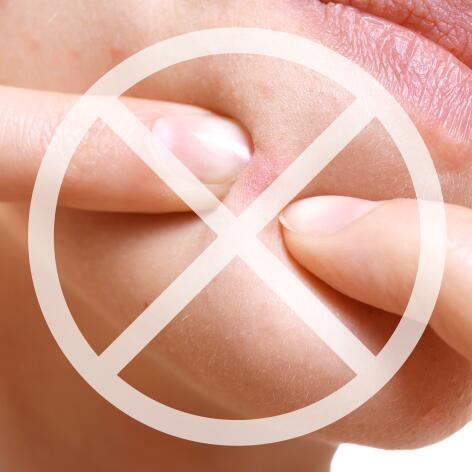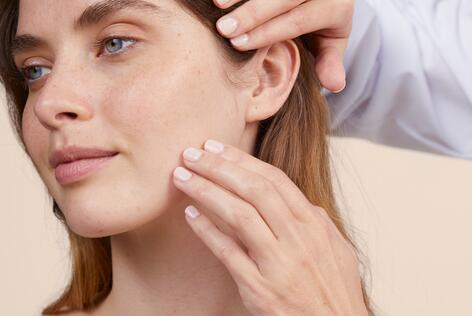The psychological impact of acne on adults
The psychological impact of acne on adults
You've just turned 30, you thought you were done with acne and now it's back. Worse: it had spared you as a teenager and is now popping up when you least expect it. If you're feeling down about these pimples, it's normal: like many people, you thought that acne was only for teenagers. Adult acne is much less well known, but like teenage acne, it can have a significant psychological impact. Fortunately, there are anti-acne solutions, even for those over 30.
The specific traits of adult acne-prone skin
While men are relatively spared from adult acne, it affects at least a quarter of women over 25. The majority have never really seen the pimples of their adolescence disappear: either they went dormant temporarily, or they’ve never completely gone away. More rarely, some women experience the appearance of pimples once they reach adulthood.
Hormonal fluctuations, heredity, but also stress, diet, smoking, pollution or unsuitable cosmetics... The responsibility of certain factors in adult acne is now well established. But having acne in adulthood is far from being easy to live with. It can have a major effect on self-confidence and on social, romantic and professional relationships. Don't panic, you're not alone!

Acting on adult acne to reduce its psychological impact
Is your pill suitable? Is your diet balanced? Do you experience acne flare-ups in times of stress? Are your cosmetic products "anti-blemish"? Do you regularly clean your sponges and brushes?
Answering these questions is already a way of drawing up a list of factors that you can try to act on in the first place. Depending on your situation, simply changing your contraception (after medical advice of course) or your beauty routine may help you to notice an improvement in your skin and feel better.
If this isn’t enough, visit a dermatologist. They will prescribe a suitable treatment. The closer you follow the treatment – bearing in mind that it can sometimes take a long time – the better the result.

According to a survey carried out by Laboratoires Pierre Fabre Dermatologie and CSA Santé, 83%* of women think that their acne has affected their daily life or their relationships with their friends.
*Survey conducted by Laboratoires Pierre Fabre Dermatologie and CSA Santé on 10,000 subjects in France.
Adult acne: accept it or cover it up?
Limiting the psychological impact of adult acne can be achieved by accepting one's imperfect skin. But this isn’t always easy.
Adult acne: accepting it
On social networks, images of young adults unabashedly displaying a face covered in pimples are increasingly numerous. Although a minority, the "skin positive" movement is trying to bust the myth of flawless skin and is inviting people to show themselves without make-up. Because isn’t accepting one's imperfections the same as feeling better?
...or camouflage your pimples?
In everyday life, at work or with friends, it can, however, be complicated to bare your face, whatever the severity of your acne. So while waiting for skin care and/or treatments to take effect, you must choose your make-up carefully: from concealer to powder, it must be high coverage, but not occlusive, and above all the formula must be anti-blemish and non-comedogenic
FRIENDLY (AND EXPERT) ADVICE
To reduce adult acne and its psychological impact, it’s important to choose the right products.
Whether you accept your pimples or want to hide them, you are faced with the same reality: adult skin is not the same as it was at puberty. It’s often drier, thinner and more reactive. Sometimes the first signs of ageing have already appeared and acne scars leave their mark, especially on darker skin.
In short, choosing the right cosmetic products for your daily routine can be a headache. But the good news is that some products are now specially formulated for adult acne-prone skin, including moisturisers, serums and night care products.
The right things to do for adult acne
Whether you're a teenager or an adult, if you don't want your acne to leave marks, popping your pimples is strongly discouraged. So, even if it's difficult, it's best not to touch them and to be patient: the treatments can seem long, but fortunately, daily care and non-comedogenic make-up for sensitive skin will help you get through it. You'll be back to beautiful skin... and in high spirits!

Our solutions specially designed for adult women
Eau Thermale Avène skincare products designed to reconcile you with your skin
- Avène Thermal Spring Water Spray
Thermal Spring Water
Avène Thermal Spring Water SpraySoothes - Restores the skin barrier - Calms
NEWSLETTER
We’re always here for your skin!
All our tips for taking care of your skin day to day.

Which skin care routine should you adopt?
Identify what it really needs with the help of our experts and discover the most suitable skin care routine for you.

